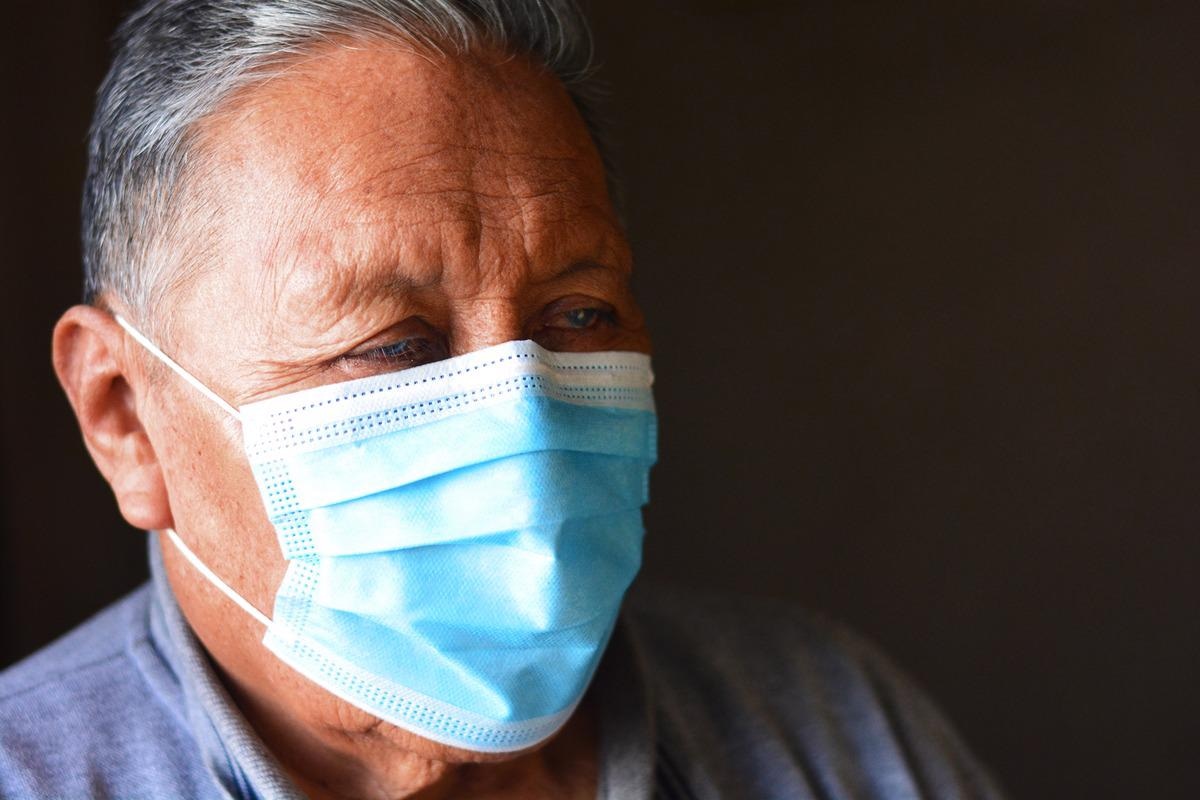In a recent study posted to the medRxiv* pre-print server, researchers assessed the loss in life expectancy in the Native American population during 2020 and 2021 due to coronavirus disease 2019 (COVID-19).
 Study: Impact of COVID-19 on Life Expectancy among Native Americans. Image Credit: Ruslana Iurchenko/Shutterstock
Study: Impact of COVID-19 on Life Expectancy among Native Americans. Image Credit: Ruslana Iurchenko/Shutterstock

 This news article was a review of a preliminary scientific report that had not undergone peer-review at the time of publication. Since its initial publication, the scientific report has now been peer reviewed and accepted for publication in a Scientific Journal. Links to the preliminary and peer-reviewed reports are available in the Sources section at the bottom of this article. View Sources
This news article was a review of a preliminary scientific report that had not undergone peer-review at the time of publication. Since its initial publication, the scientific report has now been peer reviewed and accepted for publication in a Scientific Journal. Links to the preliminary and peer-reviewed reports are available in the Sources section at the bottom of this article. View Sources
The unprecedented levels of morbidity and mortality associated with the COVID-19 pandemic has been a matter of grave concern across the globe. However, systematic reviews evaluating the life expectancy of severe acute respiratory syndrome coronavirus 2 (SARS-CoV-2)-positive native Americans are limited.
About the study
In the present study, researchers assessed the COVID-19 mortality impact on the Native American population in terms of loss of life expectancy during 2021 and 2020.
They used several data sources to derive measures of life expectancy such as the life tables released recently by the National Center for Health Statistics (NCHS) in 2019 for Native Americans that yielded data on the life expectancy and mortality rate just before the COVID-19 pandemic with data adjusted by the National Vital Statistics System (NVSS).
Additionally, data on provisional COVID-19 mortality by ethnicity, race, and age in 2021 and 2020 were collected from the NCHS and mid-year population size estimates from the United States (US) Census Bureau in 2021. The data was collected to determine the COVID-19-associated decline in life expectancy at birth and at 65 years of age between 2019 and 2021 and between 2019 and 2020. The life expectancy losses were estimated based on multiple decrement methods and were compared with corresponding values for the Black, Latino, and White populations in 2020.
The multiple decrement techniques estimate the effect of removing a mortality cause. The team treated the life tables as death conditions to expect if COVID-19 was removed as the reason for mortality with the quantification of how including COVID-19-associated deaths impacted life expectancy.
Results
In the study, 4,615 and 4,995 COVID-19-associated deaths in Native Americans during 2020 and 2021, respectively, were noted. The average age at death reduced by four years to 65 years during this period, which, combined with the rise in mortality rates, indicated a greater diminution in life expectancy at birth (e0) in 2021. This was contradictory to the author’s prediction.
The average age of COVID-19 mortality was more than 10 years higher for the White population - 75 and 82 years - in 2021 and 2020, respectively, than for the Native American population. The mortality age differences primarily reflected the substantially greater COVID-19-associated mortality among the Native American population at a younger age. COVID-19 mortality in the middle-aged and younger ages was five-fold higher for the Native American population than the White population in 2020. In 2021, these mortality rates reduced to four-fold higher. Contrastingly, above 65 years of age, mortality rates were less than two-fold higher for Native Americans.
The calculated COVID-19-associated e0 was 2.5 years and 2.8 years for the years 2020 and 2021, respectively. The impact of COVID-19 was a decrease in the number of Native Americans e0 to 69 years. This reduction was significantly lesser than the 71-year e0 estimate between 2007 and 2009 based on 64% of this population. On the other hand, the COVID-19 impact on life expectancy at 65 years (e65) demonstrated a decline of 0.2 years in 2021 from the previous year.
Even the pre-pandemic life expectancy of Native Americans was substantially lower than that of other main US races. The Native American e0 was seven years and 10 years lesser than that of the White population and the Latino population, respectively.
COVID-19-associated mortality has set the Native American population even further behind with Native American e0 loss three-fold and half a year greater than that for the White population and the Black population, respectively. The calculated e0 decrease was lower than half a year for the Latino population. These losses represented identical and proportional decreases for both the population groups. The 1.7-year e65 loss for the Native American population was similar to the Black population but lower than the Latino population.
The study results emphasize the disproportional COVID-19-associated loss in life expectancy in the Native American population - a loss three-fold and half a year higher than that of the White population and Black population, in 2020, respectively. Despite efficient vaccination, Native Americans have greater COVID-19-associated e0 losses in 2021 than in 2020. This highlights the challenges faced by the Native American population despite their efforts in mitigating COVID-19.

 This news article was a review of a preliminary scientific report that had not undergone peer-review at the time of publication. Since its initial publication, the scientific report has now been peer reviewed and accepted for publication in a Scientific Journal. Links to the preliminary and peer-reviewed reports are available in the Sources section at the bottom of this article. View Sources
This news article was a review of a preliminary scientific report that had not undergone peer-review at the time of publication. Since its initial publication, the scientific report has now been peer reviewed and accepted for publication in a Scientific Journal. Links to the preliminary and peer-reviewed reports are available in the Sources section at the bottom of this article. View Sources